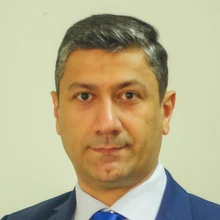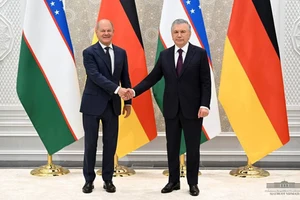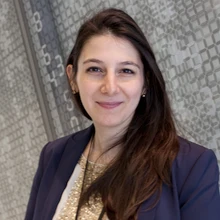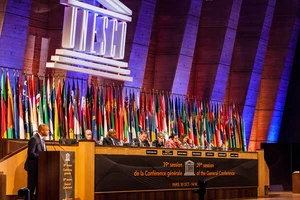
Türkiye-Russia Trade Declines Amid Western Sanctions
 By Fuad Shahbazov, Baku-based independent regional security and defence analyst By Fuad Shahbazov, Baku-based independent regional security and defence analyst
Türkiye’s Statistics Department reported in July that exports to Russia had shrunk by 28 percent from the previous year due to continuous pressure from US sanctions against Russia. The value of these exports reached only $4.16 billion in the first quarter of 2024, representing a decline from a peak of $5.80 billion the previous year. Imports surged in 2021 to a peak of $27.7 billion just before the outbreak of Russia’s war in Ukraine, and have since fallen, though they still remain far above 2020 levels. Since Russia’s invasion, the West has imposed harsh economic sanctions on the country to exert pressure on the country. Since then, however, Moscow has gone to enormous effort to circumvent those sanctions and maintain international trade. In this regard, Türkiye, a long-time Russian energy importer, has become an outlet for the Russian global economy. Turkish-Russian relations have fluctuated over the course of the war, as Türkiye tries to maintain a balanced position between the West and Russia, as well as with other regional players in the Middle East. READ MORE
- EGF Editor |
Published on EGF: 23.10.2024
| External Relations
-
Is the Balkan Region Israel’s Newfound Interest?
 By Fuad Shahbazov, Baku-based independent regional security and defence analyst By Fuad Shahbazov, Baku-based independent regional security and defence analyst
Israeli President Isaac Herzog concluded his historic first visit to Albania in September, shortly after his first-ever trip to Serbia, where both sides agreed to deepen bilateral cooperation amid Israel's extending military campaign against Hamas and Hezbollah in Southern Lebanon. Although the recent intensive diplomatic dialogue between Israel and Balkan states is gaining more impetus, it is not a new phenomenon. In the last five years, much has been done to ensure Israel’s expanding diplomatic, security, and economic ties with the Balkans, particularly with Albania and Serbia. In light of the worsening geopolitical tensions in the Middle East after the Hamas attack on Israel in October 2023 and Israel’s large-scale military campaign in Gaza and Southern Lebanon, Tel Aviv sought to build new alliances and partnerships at a critical time. READ MORE
- EGF Editor |
Published on EGF: 16.10.2024
| External Relations
-
Armenia’s Constitutional Court Dismantles One Barrier to Peace with Azerbaijan, While Erecting Others  By Tabib Huseynov, independent policy analyst and researcher By Tabib Huseynov, independent policy analyst and researcher
In a move that has left many in Armenia, Azerbaijan, and beyond scratching their heads, the Armenian Constitutional Court adopted on September 26 a landmark ruling No. 1749, greenlighting the border delimitation process with Azerbaijan. The text of the ruling (henceforth referred to as Ruling 1749 or simply, the ruling) was published three days later over the weekend, which invites questions about whether this delay was intended to minimize scrutiny as the initial news cycle on the decision faded and public attention shifted elsewhere. Some Armenian commentators hailed the ruling, claiming it invalidates Baku's criticism that Armenia's Constitution harbours territorial claims against Azerbaijan. On October 4, Armenian foreign ministry spokesperson Ani Badalyan echoed this argument, claiming the ruling proves Armenia’s Constitution contains no territorial claims. READ MORE
- EGF Editor |
Published on EGF: 08.10.2024
| External Relations
-
Important Migration Agreement Signed Between Uzbekistan and Germany  On the invitation of President of the Republic of Uzbekistan, Shavkat Mirziyoyev, Federal Chancellor of the Federal Republic of Germany Olaf Scholz arrived in Uzbekistan for an official visit on September 15. On the invitation of President of the Republic of Uzbekistan, Shavkat Mirziyoyev, Federal Chancellor of the Federal Republic of Germany Olaf Scholz arrived in Uzbekistan for an official visit on September 15.
In recent years, labor migration has emerged as a promising area of cooperation with Germany. At the same time, multifaceted and mutually beneficial relations in the field of healthcare are also developing consistently. READ MORE
- EGF Editor |
Published on EGF: 07.10.2024
| External Relations
-
From Armenia to the EU: Stay Strong on the South Caucasus   By Anahide PILIBOSSIAN, Vice President of Strategy and Development, APRI Armenia By Anahide PILIBOSSIAN, Vice President of Strategy and Development, APRI Armenia
Benyamin POGHOSYAN, PhD, Chairman, Center for Political and Economic Strategic Studies
The events of the year 2022 led the European Union to build up its foreign and security policy efforts. Its unprecedented actions in the South Caucasus since then include: The EU and Azerbaijan signed a Memorandum of Understanding on a Strategic Partnership in the Field of Energy in July 2022; in late 2022, a short-term EU civilian observer mission was established in Armenia (despite Armenia being a member of the Collective Security Treaty Organization [CSTO]), followed by a two-year mission, the EU Mission to Armenia, in February 2023; a new Partnership Agenda was announced in February 2024; Georgia received EU candidate status in December 2023; European Council President Charles Michel initiated the Brussels format to facilitate peace negotiations between Armenia and Azerbaijan.
While the EU’s intention of being a constructive neighbour and a foreign policy powerhouse in the region is commendable, regional events have stress-tested its strength, signalling the limits of its engagement.
READ MORE
- EGF Editor |
Published on EGF: 01.10.2024
| External Relations
-
The issue of the “Zangezur Corridor” is back — can Iran provide an alternative?  By Yeghia TASHJIAN, Beirut-based regional analyst and researcher, columnist, "The Armenian Weekly” By Yeghia TASHJIAN, Beirut-based regional analyst and researcher, columnist, "The Armenian Weekly”
On August 7, 2024, Elchin Amirbayov, President Ilham Aliyev’s senior envoy for special assignments, told Radio Free Europe/Radio Liberty that Baku had agreed to withdraw the issue of the “Zangezur Corridor” from Armenia-Azerbaijan negotiations and “refer it to a later stage.” This statement put Russia in a difficult position, as it had aimed to control the transit routes between Armenia and Azerbaijan, according to the November 10, 2020 trilateral statement signed by the heads of state of Armenia, Azerbaijan and Russia. As such, Russia attempted to revive the issue but met Iranian opposition. This article will highlight U.S. involvement in containing Russia’s influence in the South Caucasus, Russia’s objective behind bringing back the corridor issue and Tehran’s harsh stance against Moscow.
READ MORE
- EGF Editor |
Published on EGF: 13.09.2024
| External Relations
-
Putin’s Visit to Baku Stirs up Iran-Russia Tensions on Zangezur Corridor  By Vasif HUSEYNOV, PhD, Head of Department, AIR Center, Adjunct Lecturer, ADA and Khazar Universities, Baku By Vasif HUSEYNOV, PhD, Head of Department, AIR Center, Adjunct Lecturer, ADA and Khazar Universities, Baku
On August 18–19, Russian President Vladimir Putin paid a two-day visit to Azerbaijan. This marked the first state visit by a Russian president to the South Caucasian republic and only the second visit in the bilateral relationship since former Azerbaijani President Heydar Aliyev’s trip to Moscow in 2002. Contrary to expectations from local observers, the visit did not yield any significant agreements or binding political and economic arrangements. A few announcements were made regarding future joint initiatives, including cooperation on food security, labour inspections, the establishment of a Russian-Azerbaijani university, and the joint production of oil tankers. An agreement was also reached to expand the partnership between Russia’s public joint-stock company (PJSC) Gazprom and the State Oil Company of the Republic of Azerbaijan (SOCAR) . Gazprom CEO Alexey Miller revealed that the two sides agreed to broaden their “multifaceted strategic partnership,” particularly concerning the International North-South Transportation Corridor (INSTC) project. He also mentioned the planned signing of a comprehensive scientific and technical cooperation program in September. While few details were disclosed, this marked their first public reference to the INSTC project, about which little is currently known. Putin’s visit to Azerbaijan demonstrates how Russia seeks to maintain its influence in the region, which could lead to neighbouring states, such as Iran and Armenia, feeling threatened.
READ MORE
- EGF Editor |
Published on EGF: 13.09.2024
| External Relations
-
US and EU in the South Caucasus: Active Engagement, Uncertain Future  By Benyamin POGHOSYAN, PhD, Chairman, Center for Political and Economic Strategic Studies By Benyamin POGHOSYAN, PhD, Chairman, Center for Political and Economic Strategic Studies
The 2020 Nagorno-Karabakh war and the onset of the Russia-Ukraine conflict in February 2022 have dramatically disrupted the status quo in the South Caucasus, thrusting the region into the center of regional and global power rivalries. To varying degrees, Russia, the United States, the European Union, Turkey, Iran, Israel, France, India, China, and Pakistan are involved in the South Caucasus, creating a complex nexus of overlapping and diverging interests shaping the region’s geopolitical present and future. In recent years, the United States and the European Union have increased their presence in the South Caucasus. However, potential change in leadership in Washington and the shifting priorities in the forthcoming EU legislative cycle could significantly alter their engagement in the region. The Biden Administration has pursued active engagement in the South Caucasus. The United States has been one of the main mediators in Armenia-Azerbaijan negotiations, organizing several meetings between Armenian and Azerbaijani foreign ministers in Washington from 2022-2024 and the meeting between Prime Minister Nikol Pashinyan and President Ilham Aliyev in February 2023 in Munich.
READ MORE
- EGF Editor |
Published on EGF: 06.09.2024
| External Relations
-
UNESCO General Conference to be held in Samarkand, Uzbekistan  The 43rd UNESCO General Conference is scheduled to take place in Samarkand in 2025. The 43rd UNESCO General Conference is scheduled to take place in Samarkand in 2025.
This marks the first time Uzbekistan will host the biennial event. Historically, these conferences have primarily been hosted at UNESCO's headquarters in Paris since 1986. However, there have been eight exceptions, with meetings held in cities like Mexico City (1947), Beirut (1948), Florence (1950), Montevideo (1954), New Delhi (1956), Nairobi (1976), Belgrade (1980), and Sofia (1985).
READ MORE
- EGF Editor |
Published on EGF: 17.08.2024
| External Relations
-
What Is Next in Armenia–Turkiye Relations?  By Benyamin POGHOSYAN, PhD, Chairman, Center for Political and Economic Strategic Studies By Benyamin POGHOSYAN, PhD, Chairman, Center for Political and Economic Strategic Studies
The relationship between Armenia and Turkiye has a significant influence on the geopolitical landscape of the South Caucasus. The Turkish blockade of Armenia and refusal to establish diplomatic relations, coupled with the Nagorno-Karabakh conflict, have restricted Armenia’s ability to pursue a more flexible foreign policy, effectively binding it to an alliance with Russia. Normalizing relations with Azerbaijan and Turkiye would allow Yerevan to explore foreign and defence policy alternatives beyond its reliance on Russia. The United States has persistently advocated for Armenia–Turkiye normalization, viewing this as an essential step in untangling the post-1994 status quo in the South Caucasus, which is marked by Russian dominance through its military and economic presence in Armenia. Washington has actively engaged in many efforts, including track 1, track 1.5, and track 2 diplomacy, with initiatives such as the Turkish-Armenian Reconciliation Commission and the 2008–2009 “football diplomacy” serving as notable examples.
READ MORE
- EGF Editor |
Published on EGF: 02.08.2024
| External Relations
-
|
|
